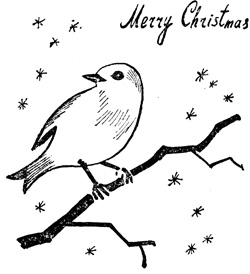
It Woudn't Surprise Charles Dickens
"Many thousands are in want of common necessaries; hundreds of thousands are in want of common comforts, sir." "Are there no prisons?" Scrooge* asked." ... and the workhouses ... are they still in operation?"
* (Scrooge - a mean-spirited, miserly person; skinflint (from the miserly character Ebenezer Scrooge in Charles pickens' Christmas Carol).)
If the spirit of Charles Dickens were to return 101 years after his death and walk the streets of London this Christmas he would find too many places where he was instantly and unhappily at home. One such place would be around Westbourne Road. Dickens would know the tenements - they were there when he was alive. He would know, too, rats like these - they're still big and black and frequently scare human beings out of their own basements. And he would know the poverty that still bites.
He would meet the Keeleys, and he would remember slums like theirs - a damp, dark basement where the kitchen has been condemned by the public health inspector since 1947 but where they still have to cook - that's when Emily Keely, who is 66, hasn't been scared out by rats "as big as kittens." Emily'and her husband, Charles, have lived there for 28 years, without hot water, without a bathroom, with buckets on the floor to catch the rain water, and with electrical installations so antiquated that when you switch on electric kettle every light bulb in the basement flickers and splutters.
A third of the 46 houses in one street are boarded up; they attract human scavengers and furry scavengers. The latter don't discriminate between the occupied and unoccupied houses. Mrs Joan Keep at No 12 was brushing behind the gas fire in her dark basement one day and two rats, covered in soot, fell down the chimney on to her head. She ran screaming from the house into the arms of her friend Josephine Horan. Mrs Horan has her own problems. Her six children sleep, three in a bed, in one room. Dampness in their basement peels the plaster and paper off the walls. Snails make shiny paths across the floor. The family, she says, were told to pack before Christmas 1968 because they were going to get a council house - they've been waiting ever since.
By now even Charles Dickens, experienced though he was in seeing and smelling the slums of London, would surely cry out: "But these houses should be condemned, sir." Correct, and condemned they have been - all 370 around Westbourne Road.
The Westbourne Road clearance has been a classic. It began in 1968 with the unseemly eviction of hundreds of furnished tenants as landlords panicked. The local paper recorded: "Landlords are evicting their tenants, many with large families and earning as little as £ 9 a week, because they believe they will get a better price for their property when they sell to the council." Only after hundreds had been made homeless did the council promise to rehouse furnished tenants and calm the storm.
One by one, families were moved, but three years later a quarter of the 1,200 households are left. For those families that are still waiting, life has been reduced from being just tolerable to being sheer hell.

"Have they no refuge or resource?" cried Scrooge.
"Are there no prisons?" said the Spirit,* turning on him for the last time with his own words. "Are there no workhouses?"
* (the Spirit - an allusion to Dickens' Christmas Carol (Scrooge spoke to three Spirits).)
|
ПОИСК:
|
© GENLING.RU, 2001-2021
При использовании материалов сайта активная ссылка обязательна:
http://genling.ru/ 'Общее языкознание'
При использовании материалов сайта активная ссылка обязательна:
http://genling.ru/ 'Общее языкознание'